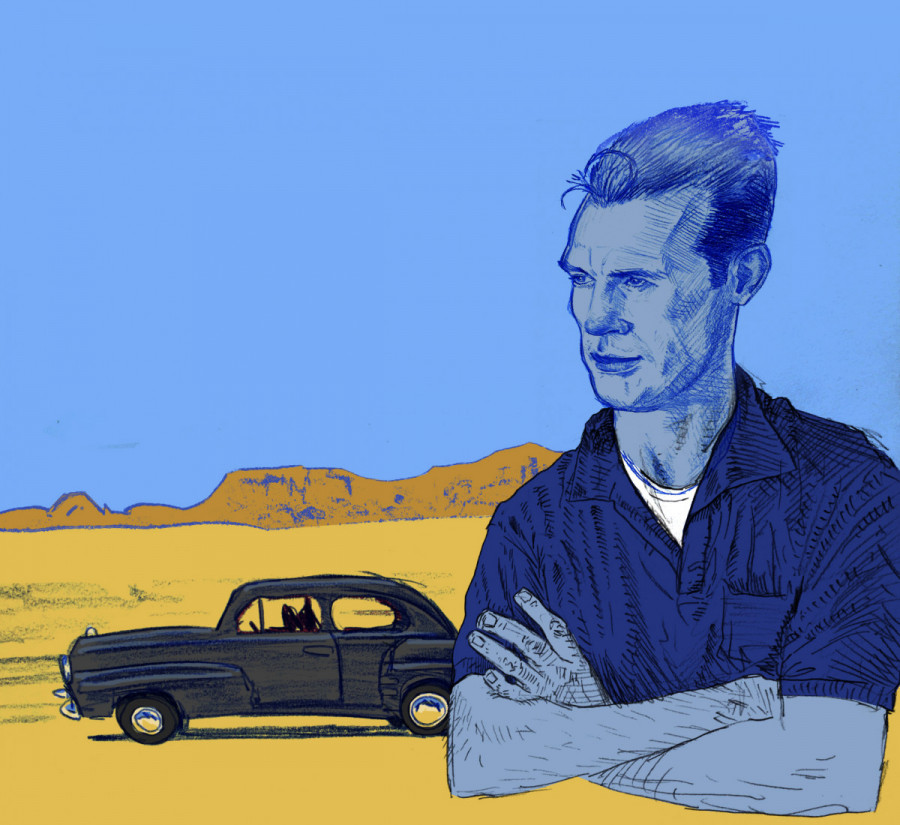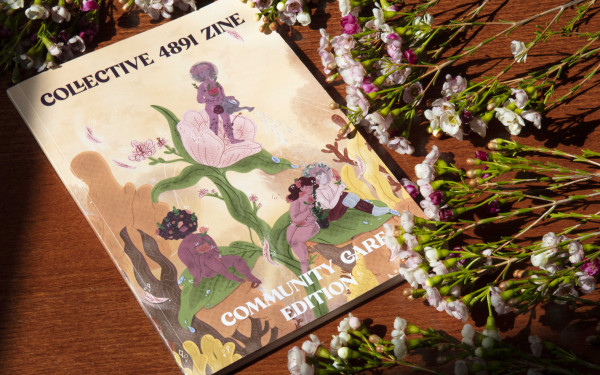Don’t@Me: Jack Kerouac Sucks; Change My Mind
Kerouac Is a Terrible Author Who Wrote Terrible Stories About Terrible People
Jack Kerouac’s magnum opus, On the Road, is a semi-autobiographical book about horrible friends who take terrible road trips around the United States—stopping only to plague their destinations with petty thefts and one-off romances with women whom they promise to stay with but never do.
Kerouac makes a point of brushing off their behaviour by choking his pages with words like “angelic,” “holy,” “free-spirited,” and “visionary.”
Despite all this, Kerouac is praised as a pioneer of the literary movement known as the Beat Generation, which was defined by the sense of malaise and the longing for exploration in American culture during the Cold War.
Even today, his aforementioned 1957 novel is seen as a defining piece of literature that reflects the atmosphere of the time.
Maybe I just couldn’t fully emerge myself into the novel because I was too distracted by the tired storyline of white middle-class ennui—directionless people seeking authenticity in poverty and entertaining brief periods of unemployment to “find themselves.”
The characters consider themselves oppressed while living a privileged life with a total lack of any actual oppression whatsoever.
Whether or not the characters were reflective of the times, the story is riddled with the glorification of assholes.
The main characters all have deep-rooted flaws that are hardly ever addressed, but are rather dismissed as just being a part of who they are.
The high priest of this religion of cognitive dissonance is Dean Moriarty. Kerouac cannot get enough of Dean Moriarty.
As one may expect, he is described as nothing short of holy, passionate, and free-spirited.
Moriarty’s relation with the narrator, Sal Paradise, is best described as an enabler. Paradise will, time and time again, put his life on pause to join Moriarty on his benders.
Paradise will watch as Moriarty destroys the lives of the people they meet on the road to nowhere, and rhapsodize about how mad and visionary it all is.
Yet, all the same, I understand the appeal—I’ve met a few Moriarties in my life. He’s laid back, charismatic, and relaxed—he gets all the women.
My problem is that the world sucks sometimes, and if everyone acted the way Moriarty and Paradise did, the world would suck even more.
The representation of female characters in Kerouac’s works is appalling.
The cycle of a male character finding a pretty girl, telling her he loves her, and then leaving her with a child after getting bored repeats itself so much it’ll make your head spin.
If the man ever comes back, the women are often happy to take them back.
More ubiquitous than the sexism is the racism in Kerouac’s writings.
He has a fascination with exoticism and Orientalism, as revealed through the romanticization of Black, Mexican, and Asian culture.
Kerouac even goes so far as to make his main character fantasize about being a black man, so he may experience the best of “life, joy, kicks, darkness, music.”
He is so delusional about the world that he believes that being a black person in the 1950s is a barrel of laughs.
Regardless of the myriad of reasons to write off his works, the youth of every generation continually latch on to Kerouac as one of the Greats.
Even with my criticisms, I understand that the novel was important at the time as a portrait of a disillusioned generation feeling lost after the Second World War.
That being said, just because a book is important doesn’t mean it’s good.
Overall, On The Road is a story about the search for something meaningful to hold on to—something that isn’t there.
I get it. It’s existentialist.
Despite how I probably sound, I can appreciate that there is something to be said for living your life in pursuit of finding something greater than yourself. I have no hostility towards that.
My problem is that the world sucks sometimes, and if everyone acted the way Moriarty and Paradise did, the world would suck even more.
The beat lifestyle can be fulfilled without being completely selfish and destructive. If everyone were more compassionate, the world could suck just a little less.
I, too, enjoy life, yet somehow this has never led me to break my thumb from hitting my girlfriend so hard because she cheated on me, while my mistress is pregnant with my child.
Which, as you may expect, is what Moriarty did.
Perhaps the appeal of Kerouac is that the beat lifestyle he writes about is relatable. It’s meant to reflect the general feeling of the times.
When people read these types of stories, they may not analyze it as much as they should. All they know, on the surface level, is that they can relate to the feelings of the main characters. But that is also precisely why the adventures found within Kerouac’s terrible works are so detrimental.
The carefree attitude and the relatability make it easy for readers to gloss over the dehumanization of secondary characters through sexism, racism, and general immorality.
It also suggests that once you get rid of all the shackles of society in your personal life—this being your families, homes, careers, and friends—only then can you end up as a truly free version of yourself.
I think it’s fine to be unhappy with your life and to take the necessary steps to try and fix your melancholy, but you can do that while maintaining some shred of virtue.
The works of Kerouac perpetuate the notion that it’s okay to have a blast with your life while ruining the ones of those around you at a hundred miles per hour.






